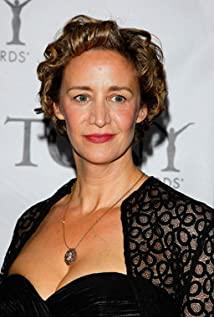I've been wondering what the difference is between him and the evil expressed by the rabble. What is the difference between the criticism of the online keyboard warriors who echo what others say?
The mediocre in the movie is not the same as stupid, this person is likely to be intelligent and very capable of reaching the top
I have also been thinking, what is the difference between this mediocrity and indifference. Arendt said, "The greatest evil in the world is a crime committed by little people, a crime committed by people without motives. There is no criminal idea, no evil, no devil's will in the heart, and the perpetrators are people who are not satisfied with being human beings. . This phenomenon leads me to call it - the evil of banality."
Eichmann doesn't shy away from even proudly showing how loyal he is in following orders, that's all. Whether such an order was against conscience or not, he did not think.
Does mediocrity mean not thinking? Indifference generally refers to people who have no feelings, so where are the feelings of mediocrity and evil?
We put the difference between humans and animals: humans can think. Only today I seem to understand the meaning of it. This criminal has no ability to think at all. This is a character that a human being has. Therefore, he no longer has the ability to make moral judgments.
This incompetence of thinking makes it possible for ordinary people to commit crimes on a large scale.
What the wind of thinking shows is not knowledge, but the ability to distinguish between beauty and ugliness (and therefore understand why Eichmann is being questioned if you have no conscience? The confusion shown)
Arendt never denied Eichmann's monstrous crime, she was trying to understand the contradiction between it and the extreme banality.
The banality of evil the film speaks of doesn't seem to be directed solely to Adolf Eichmann, but to the Jewish leaders who collaborated with Eichmann. As a politician and a thinker, Ellent thinks bravely and intensely, even if the expression of this thinking leads her into the abyss, she seems to stand on the opposite side of the masses ☞ "Between resistance and cooperation, is there another way? how?"
(Behind this bravery, it is hard to imagine that she once lived in a brutal isolation camp. Because of this, she is particularly brave)
Thinking can also empower people.
Arendt was thinking about building a political system of banal evil. He not only created Eichmann himself, but also the Jewish leaders behind him, as well as the upper class in Europe. Even, the persecuted: "The Nazis vehemently denied that crimes against the Jews could be defined as crimes against humanity"
There is another sentence I like very much, only extremes constitute evil, not radicals.
I can't help but think of what Xue Manliangyuan once said: I never miss the country when thinking with humanistic care.
Finally, I would like to say that the film's concern for women makes me look forward to it. This is a biography of a woman under a female director and a female photographer. At that time, I saw the thinking of women and respected the thinking of women. And our current film and television dramas are still showing the intrigue and betrayal between women. "Because Jews are people, and the Nazis denied that." As a woman, I finally felt a film that portrayed women as real people.
View more about Hannah Arendt reviews










